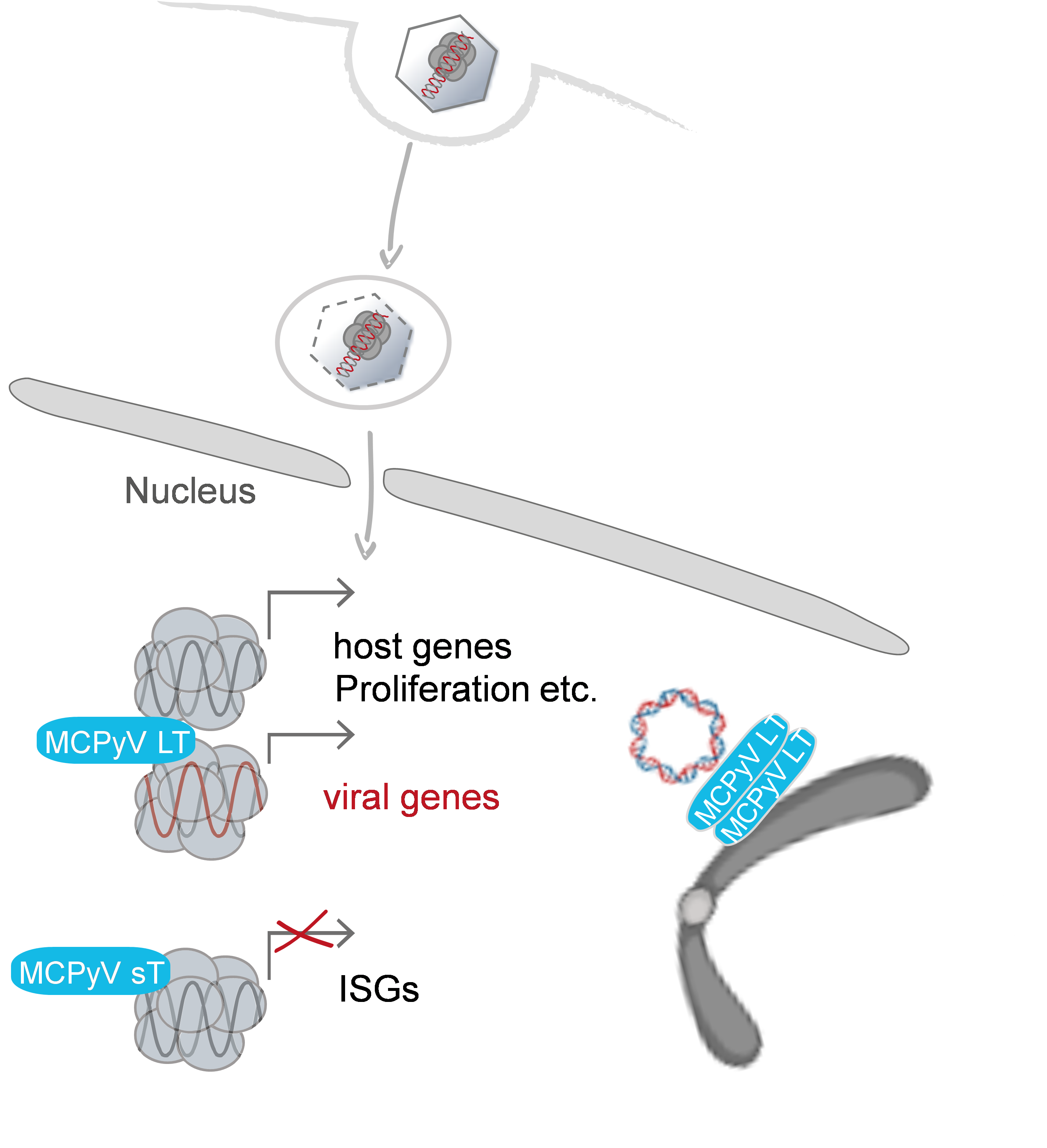
P04 - Nicole Fischer
Shaping of viral gene expression and replication patterns by host responses during early infection with human polyomaviruses
- Viral pathogenesis
- Human polyomavirus (hPyV) BKV
- hPyV, the tumorvirus MCPyV
- hPyV induced host gene manipulation
- Nuclear compartments in viral persistence

Human polyomaviruses (hPyVs) establish a lifelong persistence, which is asymptomatic in the healthy immunocompetent host. Under immunosuppression, these viruses reactivate and cause life-threatening infections such as BK Virus (BKV)-associated nephropathy and Merkel cell polyomavirus (MCPyV) induced Merkel Cell Cancer (MCC). The molecular mechanisms involved in establishing and maintaining persistence are only poorly understood. hPyV persistence and reactivation comprise a complex interplay between viral and cellular factors, including immune response regulating mechanisms. BKV establishes persistence in renal tissue, presumably in permissive cells such as primary renal epithelial tubular cells. In contrast, no cell type has yet been identified that is permissive for productive MCPyV infection in vitro or in vivo. However, persistence has been demonstrated by multiple pieces of evidence with fundamental differences in the quality of persistence between these two viruses. While MCPyV persistence is thought to reflect a quasi-latent state with no viral protein expression and episomal genome maintenance, BKV persistence presumably involves ongoing productive virus replication. The central question of the project is how hPyVs such as BKV and MCPyV establish and maintain persistence by (i) manipulating the host responses and (ii) applying molecular strategies to preserve the genome beyond cell division.
To answer these questions we are applying multiple tools including chromatin immunoprecipitation sequencing (ChIP-Seq), RNA-Seq, ATAC-Seq and imaging in appropriate infection models.
This broad spectrum of techniques is only possible thanks to the close cooperation within DEEP-DV.


